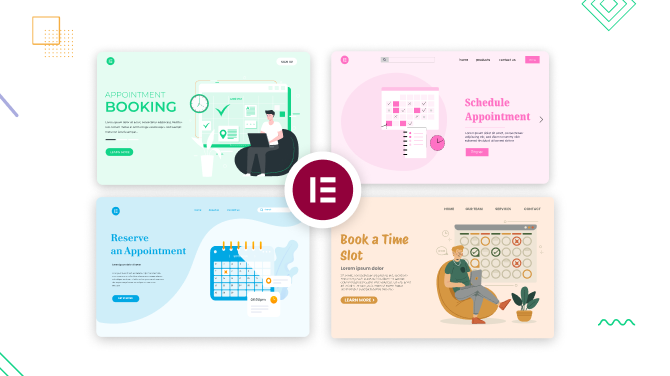How To Start a Coaching Business: 5 Key Points

Coaching is in its golden age, with different statistics predicting an average market size of $4.5 billion by 2028 for online coaching platforms alone. Even if such numbers predict a bright future, it’s the best case if you want to start a coaching business because you’ve reached a point in your career or life where you have the passion to share your expertise and make a genuine impact on others.
If you start as a coach trainer and schedule meetings with clients, you can earn your first money tomorrow; if you want to launch an online course, it might take months to get your first paying clients. So what is the best way to start a business as a coach?
Today, we’re sharing what we know about starting a coaching business, and hope some of the insights will help you get started!
Define Your Starting Point
To start a coaching business, it should be crystal clear to you what exactly you want to do, what your current level of expertise is, and what is the best method to employ it.
You should start doing even more research if you want to realize in which sphere you can get the most out of your knowledge and convert it into profit.
You can try to do your research by answering questions like:
- Which coaching sector is experiencing the most growth in your country? Is your expertise suitable for any of them? Is it worth upgrading your experience?
- How can your coaching expertise serve the local clients? Can you target international clients? Are you ready to provide coaching online or want to limit them to face-to-face meetings?
- Why are people searching for coaches in your area of expertise and what can you offer?
- What is the main terminology for the coaching business you want to start? Do you have the needed certification?
- What does a normal day of a coach in my sphere normally look like? Is it something I can/want to have?
Understand What Coaching Style Works Best for You
What is your coaching style, that is, what is the best way to share your knowledge? Do you want to write a book, create an online coaching course, or simply talk to people every day?
Modern web technologies can help maximize any of those styles with various coaching services delivery formats. Here are a few solutions to consider:
Coach trainer
A coach trainer is a great option if you are looking to spend mornings facilitating coach training workshops or webinars, give lectures, participate in group discussions, practice coaching exercises, and provide feedback. You would normally work for a specific client or company. It may involve individual or group training. In this case, you can have a normal personal brand website.
Online course
Many learning management system software allow you to build a course once and sell it many times; you can also use external platforms like Udemy for it. It requires bundling in-depth courses with quizzes, assignments, and discussions. It works great for self-directed learners and passive income through coaching. Perfect for online tutors.
Membership community
Using dedicated platforms or your own website, it’s easy to build a loyal student base with exclusive content, live sessions, and member benefits. Good for recurring revenue and managing a growing student base.
Related article: 10 Best Membership Themes For WordPress: The Ultimate Guide
E-commerce shop
Coaching is not about one-to-one training or live workshops only. You can also create various pre-made materials and sell them on your own site or using external platforms to offer clients educational materials like ebooks, tutorials, or study guides. It can be an extra source of income as well as the main one; the hardest thing in this case is marketing your product and getting your materials visible and trusted.
Social media or blog
A coaching blog, podcast, or YouTube channel. If you want to create a popular brand and monetize your popularity, you can start with any of the already established popular platforms and regularly publish relevant content. It may take a lot of time to monetize it though.
Coaching Business Site Options
Based on the coaching style and content delivery format you prefer, you have different options to put those practices on your own website:
- Personal brand website. It can simply showcase your expertise, services, testimonials, and pricing, and provide ways to reach out to you.
- Membership site. A powerful community where you can sell paid content, enable discussions, and run one-to-one and individual meetings.
- Personalized consultation scheduling. This will help you show your availability times and enable clients to book appointments. View our lists with popular coaching software.
- Classes and online courses. You can run online classes on your website.
Write a Business Plan & Calculate Initial Expenses
A good strategy for starting a coaching business is having a business plan. As the most basic option, this plan can be an outline of your main goals, practices, and expenses. For example:
- Business overview with your coaching business niche specified.
- Target market and its potential.
- Specific coaching programs or services you offer.
- Your coaching style and which software you would need to support it.
- Briefly describe your initial marketing tactics.
- Estimate your costs and describe revenue streams.
- Briefly mention any future plans to expand your services or reach new markets.
Study Legal Resources
Like any other business, coaching comes with tax responsibilities, so you’ll also want to understand how to report your income to the government.
Coaching-related associations (e.g. Coach Federation or ICF) often provide legal resources and templates for their members, including sample contracts, privacy policy templates, and general legal guides for coaches. You can also search for legal information websites like the Small Business Administration (SBA) in the US or Taxation and the Custom Union in the EU.
Let’s Conclude
So is it hard to start a coaching business? This type of business is considered a relatively low-cost startup, but still requires a lot of dedicated work.
- choose your coaching niche (career coaching, life coaching, health coaching).
- develop your coaching programs (individual coaching, online courses).
- choose your delivery method (podcast, membership site, in-person, online scheduling, blended, etc.).
- identify your ideal client and understand their needs.
- create your pricing strategy and learn the legal requirements.
Must-read articles on this topic:

Get BookingPress Premium
50+ Premium Addons
20+ Payment Gateways
Plan starts at just $79
Get Premium Now






